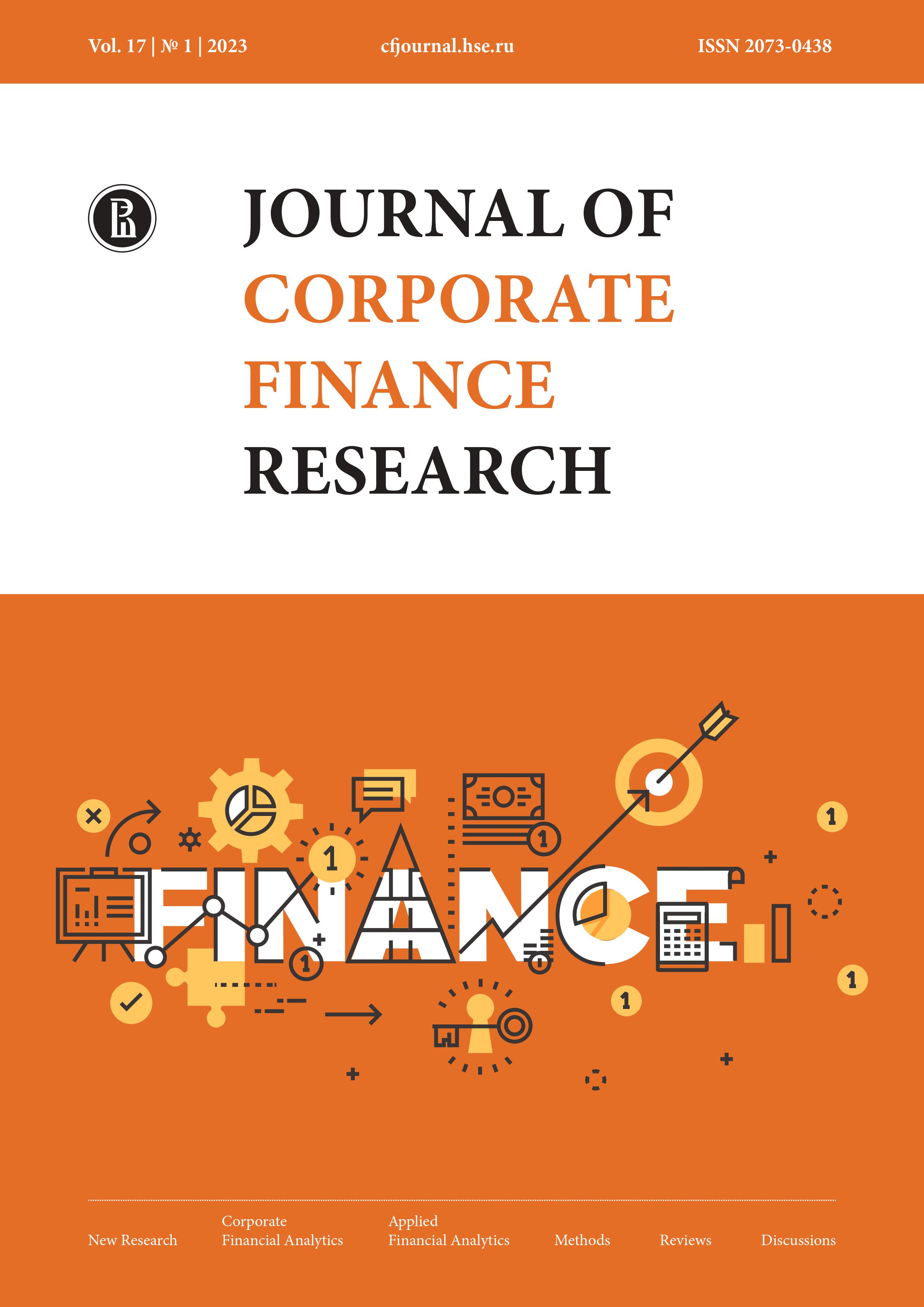Справляются ли развивающиеся рынки с внедрением принципов устойчивого развития в финансирование инфраструктуры? На примере государственно-частного партнерства в России
Аннотация
Данная статья является вкладом автора в имеющуюся литературу, посвященную оценке способов совместного создания полезного эффекта в области экологии, социальной ответственности и корпоративного управления (ESG) при осуществлении государственно-частного партнерства (ГЧП). На основе набора надежных индикаторов и независимой оценки общедоступной информации по устойчивому развитию автор разработал свой ESG-рейтинг. В рамках составления рейтинга проанализированы конкретные вопросы, связанные с оценкой проблем устойчивого развития проекта ГЧП, учитывая цели государства. Опираясь на анализ научной литературы и общедоступной информации по сходным рейтингам, автор предлагает подход к решению этих вопросов и добавлению результатов к интегрированному рейтингу воздействия ESG. Разработанный инструмент оценки
полезного эффекта ESG могут использовать институциональные, частные и государственные участники рынка ГЧП для всестороннего анализа своей инвестиционной деятельности. Анализ кейсов на примере двух проектов ГЧП из российской практики показал провалы в практиках корпоративного управления в России при инвестировании в инфраструктуру; также автором предложены возможные способы преодоления некоторых проблем путем сравнения конкретных примеров. В статье изложен новый взгляд на методологию ESG-рейтинга, который скорректирован на специфику ГЧП проектов и актуален для оценки и мониторинга соответствующих инвестиций в инфраструктуру на развивающихся рынках.
Скачивания
Литература
Safarov S. Public-private partnership as a challenge for EAEU cooperation. Journal of Corporate Finance Research. 2018;12(3):73-80. https://doi.org/10.17323/j.jcfr.2073-0438.12.3.2018.73-80
Grimsey D., Lewis M.K. Public private partnerships: The worldwide revolution in infrastructure provision and project finance. Cheltenham: Edward Elgar Publishing; 2004. 288 p. DOI: https://doi.org/10.4337/9781845423438
Hodge G.A., Greve C. Public-private partnerships: An international performance review. Public Administration Review. 2007;67(3):545-558. https://doi.org/10.1111/j.1540-6210.2007.00736.x DOI: https://doi.org/10.1111/j.1540-6210.2007.00736.x
Yescombe E.R. Public-private partnerships: Principles of policy and finance. Amsterdam: Butterworth-Heinemann; 2007. 368 p. DOI: https://doi.org/10.1016/B978-075068054-7.50025-3
Hodge G.A., Greve C., Boardman A.E., eds. International handbook on public-private partnerships. Cheltenham: Edward Elgar Publishing; 2010. 656 p. DOI: https://doi.org/10.4337/9781849804691
Hueskes M., Verhoest K., Block T. Governing public-private partnerships for sustainability. International Journal of Project Management. 2017;35(6):1184-1195. https://doi.org/10.1016/j.ijproman.2017.02.020 DOI: https://doi.org/10.1016/j.ijproman.2017.02.020
Markovskaya E., Holodkova V., Radushinsky D. Public-private partnerships: Does Russian practice follow international experience? Journal of Corporate Finance Research. 2019;13(2):104-113. https://doi.org/10.17323/j.jcfr.2073-0438.13.2.2019.104-113 DOI: https://doi.org/10.17323/j.jcfr.2073-0438.13.2.2019.104-113
Keeys L.A., Huemann M. Project benefits co-creation: Shaping sustainable development benefits. International Journal of Project Management. 2017;35(6):1196-1212. https://doi.org/10.1016/j.ijproman.2017.02.008 DOI: https://doi.org/10.1016/j.ijproman.2017.02.008
Villalba-Romero F., Liyanage C., Roumboutsos A. Evaluating success in PPP road projects in Europe: A comparison of performance measurement approaches. Transportation Research Procedia. 2016;14:372-381. https://doi.org/10.1016/j.trpro.2016.05.089 DOI: https://doi.org/10.1016/j.trpro.2016.05.089
Billio M., Costola M., Hristova I., Latino C., Pelizzon L. Inside the ESG ratings: (Dis)agreement and performance. Corporate Social Responsibility and Environmental Management. 2021;28(5):1426-1445. https://doi.org/10.1002/csr.2177 DOI: https://doi.org/10.1002/csr.2177
Pagano M.S., Sinclair G., Yang. T. Understanding ESG ratings and ESG indexes. In: Boubaker S., Cumming D., Nguyen D.K., eds. Research handbook of finance and sustainability. Cheltenham: Edward Elgar Publishing; 2018:339-371. https://doi.org/10.4337/9781786432636.00027 DOI: https://doi.org/10.4337/9781786432636.00027
Hebb T. Investing in sustainable infrastructure. In: Croft T., Malhotra A. The responsible investor handbook: Mobilizing workers’ capital for a sustainable world. Abingdon, New York: Routledge; 2013:251-273.
Weber B., Staub-Bisang M., Alfen H. Infrastructure as an asset class: Investment strategy, sustainability, project finance and PPP. 2nd ed. Chichester: John Wiley & Sons Ltd; 2016. 432 p. DOI: https://doi.org/10.1002/9781119226574
The Russians named the main environmental problems of the country. RBC. Feb. 06, 2019. URL: https://www.rbc.ru/politics/06/02/2019/5c59b1709a79478082250bcb (In Russ.).
Research Holding Romir. URL: https://romir.ru/eng
Daly H.E., Farley J. Ecological economics: Principles and applications. 2nd ed. Washington, DC: Island Press; 2011. 484 p.
Devolder S., Block T. Transition thinking incorporated: Towards a new discussion framework on sustainable urban projects. Sustainability. 2015;7(3):3269-3289. https://doi.org/10.3390/su7033269 DOI: https://doi.org/10.3390/su7033269
Laloё F. Information at the interface between supply and demand for indicators: The use of a model with estimated parameter values as a base for indication in multicriteria analyses. International Journal of Sustainable Development. 2007;10(1-2):33-45. https://doi.org/10.1504/IJSD.2007.014412 DOI: https://doi.org/10.1504/IJSD.2007.014412
Neumayer E. Weak versus strong sustainability: Exploring the limits of two opposing paradigms. Cheltenham: Edward Elgar Publishing; 2003. 296 p.
Safarov S. Public-private partnership as a challenge for EAEU cooperation. Journal of Corporate Finance Research. 2018;12(3):73-80. https://doi.org/10.17323/j.jcfr.2073-0438.12.3.2018.73-80 DOI: https://doi.org/10.17323/j.jcfr.2073-0438.12.3.2018.73-80
O’Riordan T. The politics of sustainability. In: Turner R.K., ed. Sustainable environmental management: Principles and practice. London: Belhaven Press; Boulder, CO: Westview Press; 1988:29-50.
Bossel H. Indicators for sustainable development: Theory, method, applications. A report to the Balaton Group. Winnipeg: International Institute for Sustainable Development; 1999. 138 p. URL: https://www.iisd.org/system/files/publications/balatonreport.pdf
Carter N. The politics of the environment: Ideas, activism, policy. 2nd ed. Cambridge, New York: Cambridge University Press; 2007. 432 p. DOI: https://doi.org/10.1017/CBO9780511819179
Louche C., Delautre G., Balverdi Pimentel G. Assessing companies’ practices on decent work: An analysis of ESG rating methodologies. International Labour Review. 2023;162(1):69-97. https://doi.org/10.1111/ilr.12370 DOI: https://doi.org/10.1111/ilr.12370
Dyllick T., Hockerts K. Beyond the business case for corporate sustainability. Business Strategy and the Environment. 2002;11(2):130-141. https://doi.org/10.1002/bse.323 DOI: https://doi.org/10.1002/bse.323
Silvius G.A.J., Schipper R.P.J. Sustainability in project management: A literature review and impact analysis. Social Business. 2014;4(1):63-96. http://dx.doi.org/10.1362/204440814X13948909253866 DOI: https://doi.org/10.1362/204440814X13948909253866
Silvius G., Schipper R., Planko J., van den Brink J., Köhler A. Sustainability in project management. Farnham: Gower Publishing, Ltd.; 2012. 182 p.
Copyright (c) 2023 Национальный исследовательский университет «Высшая школа экономики»

Это произведение доступно по лицензии Creative Commons «Attribution-NonCommercial-NoDerivatives» («Атрибуция — Некоммерческое использование — Без производных произведений») 4.0 Всемирная.

